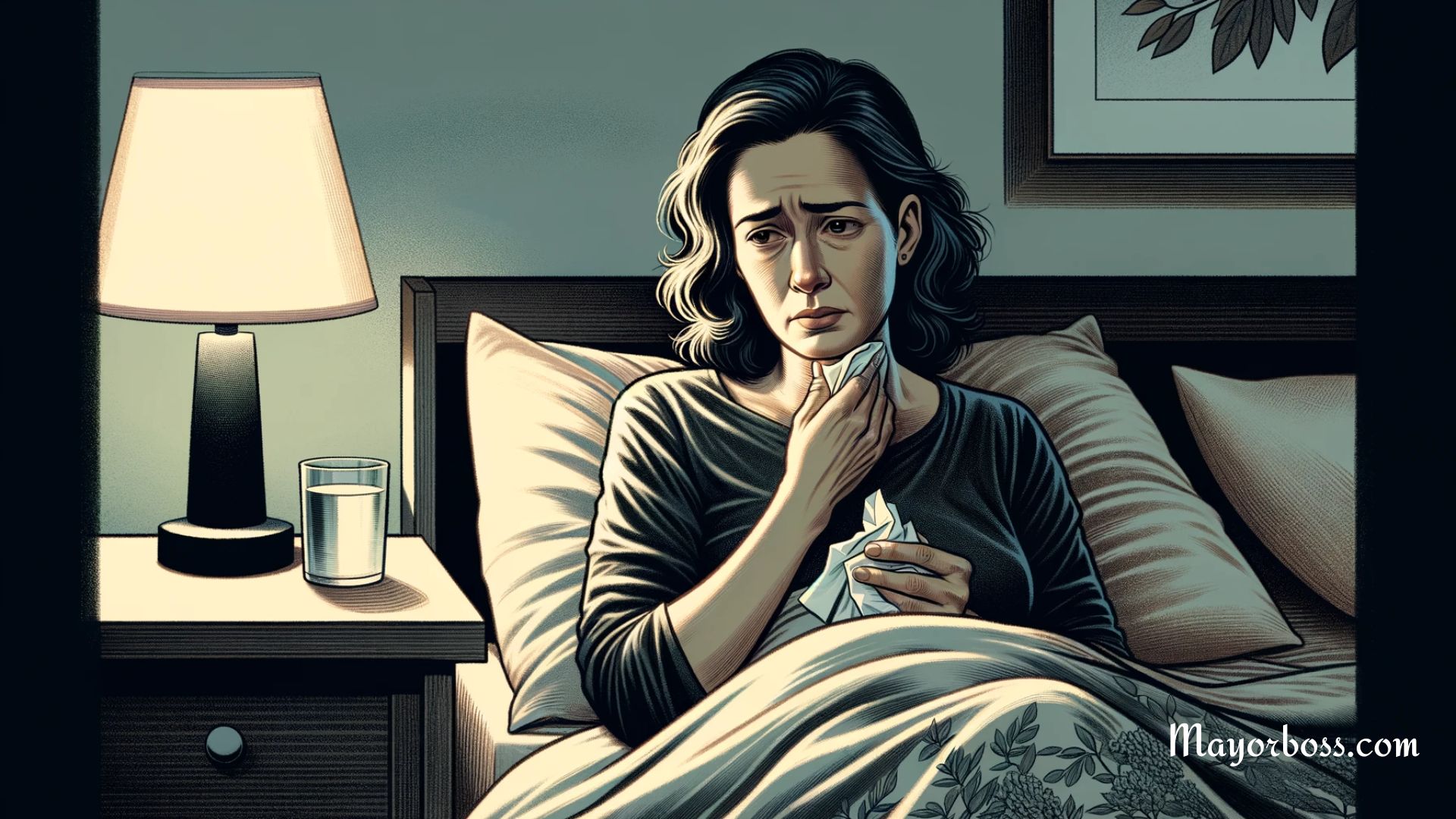Reasons Why You Only Cough at Night
Coughing exclusively at night might seem strange, but it actually has several surprising explanations. When you’re trying to get a good night’s rest, understanding why you’re coughing can be crucial. So, let’s examine some of the less obvious reasons behind this nocturnal nuisance.

1. Postnasal Drip
One common yet often overlooked cause of nighttime coughing is postnasal drip. When you lie down, mucus from your sinuses can accumulate in your throat. This irritates your throat lining and triggers a cough. During the day, this mucus usually disperses unnoticed as you swallow or move around.
2. Asthma
Asthma isn’t just a daytime issue. In fact, asthma symptoms, including coughing, can actually worsen at night. Cooler nighttime air and allergens in your bedroom, like dust mites, can aggravate your airways. Moreover, lying down can also make it harder to breathe, prompting a cough.
3. Gastroesophageal Reflux Disease (GERD)
GERD, or acid reflux, is another potential reason. When you’re upright, gravity helps keep stomach acid where it belongs. But when you lie down, acid can seep into the esophagus, causing irritation and cough. You might not even feel heartburn, but a cough could be your body’s way of responding to this irritation.
4. Allergies
Your bedroom environment could harbor allergens, like pet dander or mold, which don’t bother you during the day. At night, prolonged exposure to these allergens can trigger your body’s defense mechanisms, resulting in a cough.
5. Dry Air
The air in your bedroom might be drier than you think, especially in winter or in air-conditioned rooms. Dry air can dehydrate your throat and airways, leading to irritation and a persistent cough. A humidifier could help by adding moisture to the air.
6. Certain Medications
Some medications, especially certain types of blood pressure drugs like ACE inhibitors, have a known side effect of causing a dry cough. If you take medication in the evening, this side effect might become more noticeable at night.
7. Habitual Coughing
Sometimes, coughing can become a habit, particularly if you’ve had a recent illness. Even after the initial cause is gone, your body might continue to cough out of habit, especially in the quiet and stillness of night.
8. Respiratory Infections
While this isn’t weird, it’s worth mentioning. Respiratory infections like a cold or flu can cause a lingering cough. As your body fights off the infection, coughing can persist, often becoming more noticeable at night due to the reasons mentioned above.
9. Stress and Anxiety
Stress and anxiety can manifest physically, sometimes as a cough. The quiet of the night can make your mind race, and this stress response might trigger coughing.
Conclusion
Nighttime coughing can be more than just an annoyance. It can be a sign of underlying issues. Consult with your healthcare provider if you’re experiencing persistent or severe symptoms. Meanwhile, simple changes like using a humidifier, adjusting your sleeping position, or reviewing your medications with a doctor might provide some relief. Your body is always communicating with you, and a cough is no exception. Understanding these signals can be key to finding a solution.






